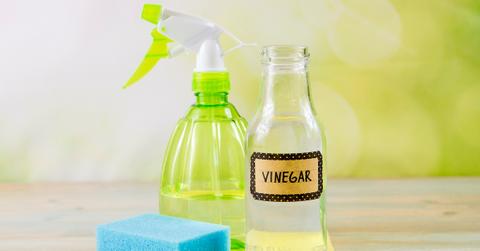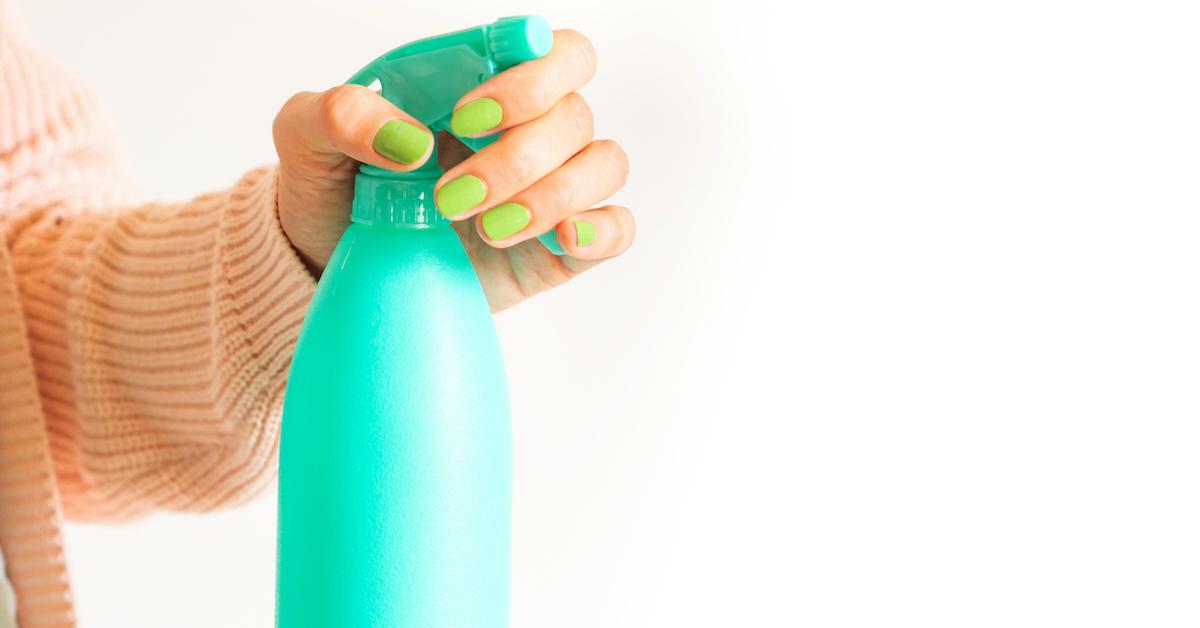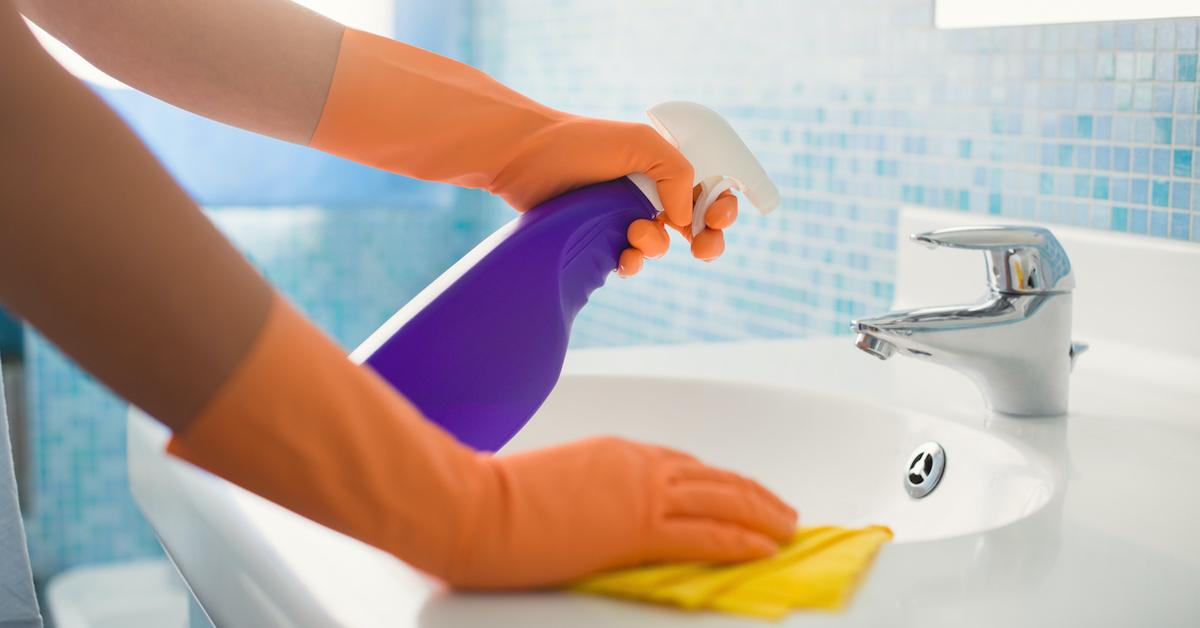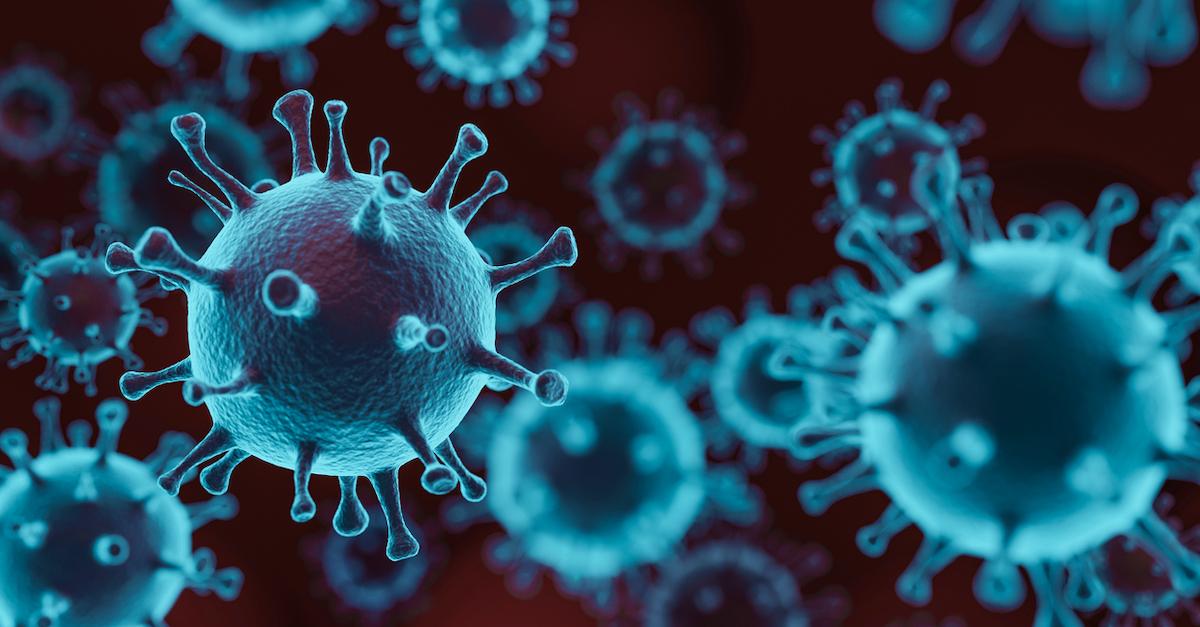Here's What You Need to Know About Using Vinegar as a Disinfectant
Updated April 29 2020, 4:53 p.m. ET

Desperate times call for desperate measures — and in the wake of the coronavirus outbreak, that may mean using chemical-laden products that are full of ingredients you usually avoid and, often, excess plastic packaging. While keeping you and your family healthy should always be your first priority, you may find yourself looking for a natural cleaner in lieu of something environmentally harmful, there are several common household items you can blend together, to ward off germs.
Vinegar is commonly perceived as a natural cleaning solvent, but can it effectively fend off the coronavirus? Here's what you need to know about using vinegar to disinfect your home.

Can vinegar be used to kill the coronavirus?
If you're no stranger to making your own cleaning products, you've probably referred to vinegar at some point or another for a cheap and natural ingredient. According to Insider, one of the main ingredients in vinegar is called acetic acid, and it's effective for breaking down dirt, killing certain types of germs, and wiping away grime. However, it may not be able to kill the coronavirus.
Vinegar has not been deemed an "effective household disinfectant" by the Environmental Protection Agency (EPA). While the EPA has tested and proven that certain household items — like bleach — kill bacteria and viruses, vinegar doesn't necessarily pass the test. In fact, soap and water are reportedly recommended over vinegar as disinfectants.

What natural ingredients can be used as disinfectants?
While good old-fashioned soap and water is reportedly OK to use on its own, there are several highly effective (and all-natural) substances that can also be used to kill the coronavirus. According to Consumer Reports, isopropyl alcohol — or any alcohol solution with at least 70 percent alcohol — can fight the virus when applied to hard surfaces for at least of 30 seconds.
Apparently, household hydrogen peroxide is also suitable for fighting viruses — it can reportedly kill the Rhinovirus in only six to eight minutes, which is far more difficult to dismantle than the coronavirus. By simply spraying hydrogen peroxide on a surface and letting it sit for about one minute could easy kill the coronavirus.

If you don't want to make something yourself, there are several natural disinfectant sprays you can buy.
Clean Cult is an all-natural brand of biodegradable cleaning products, with an all-purpose cleaner that's loaded with citric acid (and therefore, smells amazing while killing bacteria). And right now, for every purchase made on their website, the brand will donate one bar of soap to to the Giving Back program. It's a win-win situation.
Seventh Generation, which is generally known for its all-natural laundry detergents, dish soaps, and baby care products, also boasts an entire line of disinfecting sprays that won't cause damage to your health or the environment. And the best part? They're available in most grocery stores.
To learn more about products that safely and effectively fight against the coronavirus in your home, the Environmental Working Group (EWG) examined a list of CDC-recommended cleaners and, using their own methodology of seeing what scored an A or B on their own Guide to Healthy Cleaning. (Seventh Generation's line of disinfectant sprays, cleaners, and wipes made the cut.)
Although vinegar unfortunately is not guaranteed to fend off viruses, there are so many other effective substances you can use to disinfect your home, that aren't filled with nasty ingredients. Between a variety of common household items, and a slew of store-bought sprays, the opportunities are truly endless.
The best way to prevent contracting or spreading coronavirus is with thorough hand washing and social distancing. If you feel you may be experiencing symptoms of coronavirus, which include persistent cough (usually dry), fever, shortness of breath, and fatigue, please call your doctor before going to get tested. For comprehensive resources and updates, visit the CDC website. If you are experiencing anxiety about the virus, seek out mental health support from your provider or visit NAMI.org.
